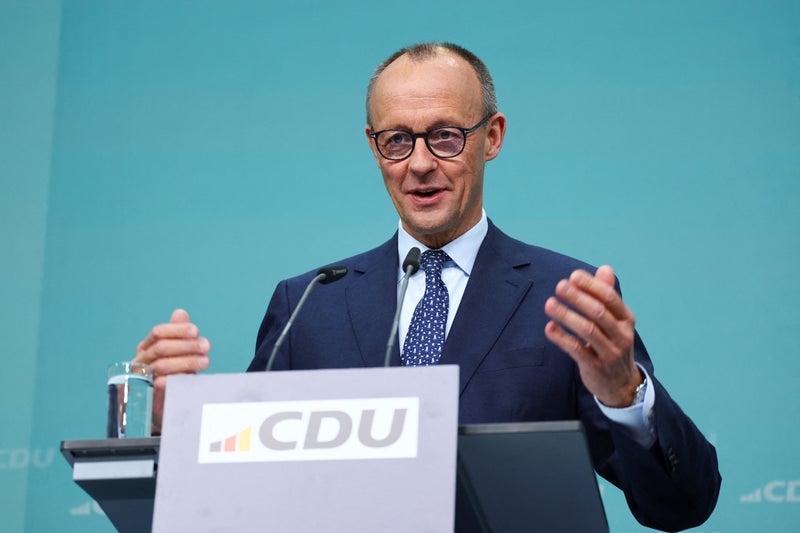Friedrich Merz marked his conservative alliance’s victory in Germany’s election by urging Europe to make itself more independent from the US – a project that will be music to the ears of Emmanuel Macron but may turn on whether Merz can build a Bundestag majority to lift the so-called debt brake that slows increases in defence spending.
Foreign policy and decisions about defence spending had taken a back seat during the campaign, but Merz struck an urgent tone, saying he was not sure whether the leaders gathering for a Nato summit in June “would still be talking about Nato in its current form or whether we will have to establish an independent European defence capability much more quickly”.
Before the election, Merz hinted at his radicalism: “We need to have discussions with both the British and the French – the two European nuclear powers – about whether nuclear sharing, or at least nuclear security from the UK and France, could also apply to us”.
They will also need to compare notes as to whether the UK, a natural engager with Washington, is starting to conclude its security lies with Europe, and if so, whether some of the Starmer government’s red lines about the single market will have to be removed to kickstart greater European defence cooperation.
On the domestic front, Merz will have to see whether there is a two-thirds majority in the Bundestag to lift the debt brake, a constitutionally enshrined rule that limits Germany’s structural budget deficit to 0.35% of national output.































